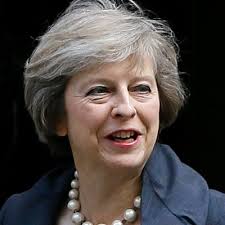‘The UK will ratify the Unified Patent Court Agreement (UPCA) in March, most likely before the Brexit article 50 is triggered.’ It was only last month this scenario was described by the UPC Preparatory Committee during a conference in Amsterdam. By now, we know this has been overly optimistic, but is it a problem for the Unitary Patent system? ‘Not at all’, according to Eileen Tottle, head of secretariat of the UPC Preparatory Committee and patent expert at the UKIPO. ‘Getting the provisional period started is our main concern, not the UK.’

Whether you like it or not, 29 March 2017 was a historic day. By triggering Article 50, Prime Minister Theresa May formally started the departure of the UK from the European Union. It led to questions among patent specialists, who wondered how bad this was for the chances of the Unitary Patent system. After the surprise announcement in November 2016 that the UK intended to stay in the Unitary Patent system despite the Brexit vote, the UPC Preparatory Committee had repeatedly said they hoped or expected the UK to ratify the UPCA before the Article 50 procedure was triggered.
Christopher Sharp, senior associate of Pinsent Masons, for instance, wrote this week: ‘With the triggering of article 50, it has overnight become more politically difficult for the UK government to move forward with ratification and maintain its stance on the CJEU’s jurisdiction. There is also now a danger that the UK’s ratification will form part of the negotiations that are soon to commence on the terms of the UK’s exit from EU membership.’
Sharp referred to the contradiction – that many have noticed with him – between the promise of Prime Minister Theresa May to bring an end to the jurisdiction of the European Court of Justice (CJEU) in Britain, and the fact that decisions by the CJEU will be binding on the UPC.
The UK’s position in the Unitary Patent project was also discussed during the European Parliament Legal Affairs Committee’s hearing on the Unitary Patent last week. EPO president Benoit Battistelli declared he was optimistic for a number of reasons that the first Unitary Patent would be granted this year: ‘Firstly, the Unified Patent Court’s Preparatory Committee is working to a timetable which will see entry into force in December. Indeed just a couple of weeks ago they met in The Hague for the last time before entering into the next stage of the project; the phase of provisional application. Secondly, there is a strong sense of support from both Member States and the users to see the entry into force as soon as possible.’
Bernhard Rapkay, however, a former MEP and one of the rapporteurs for the legislative package, told the Legal Affairs Committee he was doubtful, according to a Bristows report: ‘whether, because of Brexit, the UK would actually ratify the UPC Agreement, referring, inter alia, to the Agreement’s provisions concerning the CJEU and to the negotiations before the Agreement was signed in 2013.’
Another, more general issue in the process to set up the UPC is the tight time schedule. The UPC Preparatory Committee wants the provisional period of the court to begin by the end of May. The summer break is approaching fast, and enough time is needed to appoint judges and to make other practical preparations for the UPC to open its doors in December 2017 as planned.

‘Getting enough support for the Protocol to the UPCA on provisional application (PPA) is our main concern at the moment.’, Eileen Tottle, head of secretariat of the Preparatory Committee, told Kluwer IP Law in a phone interview. ‘And not what is happening in the UK or Germany. If we cannot start by the end of May, our whole time schedule will need to be re-planned. We need 13 UPC member states, including France, Germany and the UK, that have 1) ratified or received parliamentary approval to ratify the UPCA ánd 2) approved or declared to be bound by the PPA. Apart from Germany and the UK, which are fully on track, we need two more member states to qualify for this.’
One of them will be Greece, according to Tottle. ‘We were informed they will ratify both the UPCA and the Provisional Protocol after the Easter recess.’ The Preparatory Committee are confident they will receive the necessary numbers, having spoken to delegations at its last meeting in The Hague.
Commenting on reports that it will be more difficult for the UK to ratify the UPCA now that the article 50 procedure has been triggered, Tottle said that this ‘speculation is totally unfounded. People have been reading too much into that. As Preparatory Committee we have a very different view on the situation than from outside. We have been communicating our confidence, but it seems people don’t want to believe it.’
According to her expectation, a Statutory Instrument (SI), legislation to implement the Protocol on Privileges and Immunities – regulating the legal position of the Court and its staff under UK law – will go through Westminster and the Scottish parliament after the Easter recess, as has already happened last year with a similar SI on UPCA ratification. Simultaneously, the UK will approve the PPA.
Tottle explained that the UK and Germany (where parliamentary approval to ratify the UPCA and the PPA is also expected in spring) are in close contact about the moment they will formally complete the ratification procedure, by depositing their instruments of ratification with the EU Council secretariat: ‘The nature of the process will require UK and Germany to co-ordinate closely their respective ratifications, thereby triggering the start of the UPC.’ As is outlined in Article 89 UPCA, the agreement enters into force on (…) ‘the first day of the fourth month after the deposit of the thirteenth instrument of ratification (…).’ Twelve member states have already ratified the UPCA over the last years. Both Germany and the UK are mandatory ratifiers.
Tottle said the Preparatory Committee hasn’t been focussing on what should happen with the UK and the Unitary Patent system once the UK leaves the European Union in two years’ time. ‘With our limited resources we haven’t even been able to think about that. And it is of course up to the UK government and not to us.’
For regular updates on the Unitary Patent and the Unified Patent Court, subscribe to this blog and the free Kluwer IP Law Newsletter.
________________________
To make sure you do not miss out on regular updates from the Kluwer Patent Blog, please subscribe here.



Wishful thinking at its best!
How can UK stay in the UPC after Brexit, if the UP means enhanced cooperation among member states of the EU member states?
That is what is said in the UPC agreement, and its difficult to understand how it is possible to a non EU member state can stay in the UPC.
Then why not accept other no EU member states? This would in fact mean that EPLA is revived, but Opinion 1/09 of the CJEU made it abundantly clear the EPLA is not in conformity with the EU treaties and regulations.